Ink & Passion: Modern Women Writers Who Changed Japan
Part II: From Early Post-War Era To Modern Days
The faces behind Japan’s post-war turbulence, restlessness and extreme passion.
In the first part of our series, focusing on influential women writers in Japan, we introduced seven women who penned some of Japan’s best-known books from the Meiji to the early Showa eras. In the second part of the series, we look at 10 equally influential modern women writers from post-war Japan to recent times.
Japan’s defeat in World War II inspired stories of loss and desperation. The 1970s and 1980s brought new themes. Many works began focusing on moral, intellectual and psychological issues during that time.
In recent days, there has been an emphasis on darker themes. These include restlessness, rejecting the status quo and extreme emotions. Strong female characters with a sense of purpose also dominate modern literature. It’s an era where women recognize their rights and needs. Through their works, they boldly call for recognition.
1. The Crime Master: Natsuo Kirino (1951–present)
This hugely popular author has been called “the queen of Japanese crime.” Natsuo Kirino writes books that delve into the darkest recesses of the mind but their saving grace is the way they shine light on the less fortunate and the downtrodden, which motivates and empowers women.
Kirino’s first foray into the literary world began when she attended script writing classes which set her on a course to write romance novels. However, when she realized that she didn’t feel passionate about this genre, she moved on to hardboiled detective stories.
Kirino’s stories can be unapologetically gruesome, sordid, seedy and unsavory. Her protagonists are nearly all female. There’s often a twist that turns completely innocent characters into criminals, and the reader feels they’re watching all the action from the sidelines, which makes for exhilarating reading.
Here are some of her notable books that been translated into English:
- Auto (Out, 1997), a winner of the Mystery Writers of Japan Award
- Gurotesuku (Grotesque, 2003), which won the Izumi Kyoka Prize for Literature
- Riaru Warudo (Real World, 2003)
- Intrusion (2011)
- Joshinki (The Goddess Chronicle, 2008), also a Murasaki Shikibu Prize-winning title
Kirino has also won the Naoki Prize, the Yomiuri Prize and the Tanizaki Prize.
2. The Sci-Fi & Fantasy Polymath: Kaoru Kurimoto (1953–2009)
Born in Tokyo and a graduate of Waseda University, Kurimoto wrote nearly 400 books in her rather short lifetime. She is best known for her contributions to science fiction, and she’s famous for her 130-volume Guin Saga, which has been adapted for manga and anime and translated into many languages.
Kurimoto is recognized as a writer of new-wave science fiction, but she also wrote horror, fantasy, historical romance and mystery, predominantly in the yaoi or boizu rabu (boys’ love) genre, which is aimed at female readers. She wrote under two pen names: Sumiyo Imaoka for her novels and Azusa Nakajima for critiques and music.
She won several prizes early in her literary career, including The Gunzo Prize in 1977, and she was the youngest ever woman to win The Edogawa Rampo Prize in 1978. Kurimoto hosted a genre-themed radio station in the 1970s, but continued writing fiction and nonfiction. Kurimoto has been praised for her interpretation of gender, power and patriarchal themes.
Her first science-fiction novel Alien Satsujin Jiken (The Case of the Alien Murderer, 1981) was influenced by the popularity of the Star Wars movies, while her Guernica 1984-nen (Guernica 1984, 1984) paid homage to George Orwell.
3. The Love Crusader: Hiromi Kawakami (1958 – present)
For offbeat fiction that looks into the reality of contemporary Japanese women’s love lives, this is your author. Hiromi Kawakami is a haiku poet, essayist and novelist. The majority of her works focus on highly realistic stories about the lives and loves of women. Her collection of short stories entitled Kamisama (God, 1994) was well-received and won the Pascal Short Story Prize for New Writers.
Kawakami also won the Akutagawa Prize in 1996 for Hebi o Fumu (Tread on a snake). She was praised for her unpredictable and imaginative writing style.
In 2000, she won the Ito Sei Literature Prize as well as the Joryu Bungaku Sho (Woman Writer’s Prize) for Oboreru (Drowning). Her novel Sensei no Kaban (The Briefcase or Strange Weather in Tokyo)—a book about the love affair of a woman in her 30s and a man in his 70s—is among her best-known works. It was awarded the 2001 Tanizaki Prize and was shortlisted for the Man Asian Literary Prize in 2012 and the 2014 Independent Foreign Fiction Prize.
In 2015, she received the Yomiuri Prize for Suisei; the Izumi Kyōka Prize for Literature for Ookina Tori Sarawarenai yo (Under the Eye of the Big Bird) in 2016; and the Purple Ribbon Medal of Honor in 2019, awarded by the Emperor of Japan.
Her writing is sensual in nature and reflective, but it has also been described as disconcerting and exhilarating.
4. The 50 Shades Of Black: Amy Yamada (1959–present)
If Fifty Shades of Grey were Japanese, it would have been written by Amy Yamada. This charismatic author explores intense, raw themes.
Her works dive into sex, drugs and the darkness of hardcore heterosexual relationships. She also examines intercultural relationships in Japan’s foreign community.
Amy Yamada, born Futaba Yamada, moved frequently as a child due to her father’s job. This constant relocation led to bullying and ostracism.
Feeling isolated, she turned her attention to foreigners, especially Japan’s black community. In middle school, she discovered black soul music. Its powerful songs about poverty, racial tension and social injustice deeply moved her.
Yamada dropped out of Meiji University’s Literature Department. She began writing books about relationships with black men, as well as hedonistic lifestyles, including drugs and violence. These sorts of sexual taboos would often shock her readers.
In 1995, her debut book Beddotaimu Aizu (Bedtime Eyes), the intense and controversial love, sex, drugs and booze story of a Japanese woman and an African-American military man from Yokosuka base, was a huge success and won the Bengei Prize.
She received the Naoki Prize for her novels: Soru Myujikku Rabazu Onri (Soul Music Lovers Only) in 1987, the Hirabayashi Taiko Bungaku Prize for Fuso no Kyoshitsu (Classroom for the Abandoned Dead) in 1989; the Tanizaki Prize for Fumi Zekka (Wonderful Flavor) in 2005, the Noma Bungei Prize for Gentleman in 2012 and the Kawabata Yasunari Prize for Seisen Teruteru Bozu in 2016.
5. The Universal Writer: Yoko Ogawa (1962–present)
Yoko Ogawa has become a worldwide success on par with Haruki Murakami, partially because her books are so easy to translate into English.
Her stories rarely include obvious signs of Japanese culture, making them appealing to a broad, international audience. Ogawa’s protagonists are usually female and one-dimensional. Her themes, however, are universal and deeply resonate with readers.
She focuses on isolation, intimacy, death, self-observation, women’s roles in society and spiritual awakening. Female narrators often meet strange, puzzling men by chance. These men come and go, leaving behind regret but also a sense of fulfillment.
Ogawa has won every major Japanese literary award. Internationally, she has been the recipient of the Shirley Jackson Award and the American Book Award. Her most famous books are:
- Daibingu puru (The Diving Pool: Three Novellas, 1990)
- Hoteru Airisu (Hotel Iris, 1996)
- Kamoku na shigai, midara na tomurai (Revenge: Eleven Dark Tales, 1998)
- Hakase no ai shita sushiki (The Housekeeper and the Professor, 2003), which was later adapted for a film.
6. The Breeze Of Fresh Air: Banana Yoshimoto (1964–present)
With a prevalence of negativity, nostalgia and pessimism characterizing the majority of Japan’s famous novelists’ works, Banana Yoshimoto is a breeze of fresh air during your afternoon reading break with a cup of warm tea.
Mahoko Yoshimoto once said she chose the pen name Banana Yoshimoto because banana blossoms look “cute and androgynous.”
Japan is at the heart of all of her writing. She likes to produce works for the young (and the young at heart) in a manga-esque style. Her gastronomic incline has transformed her into an amazing food writer, too. Her X account (@y_banana) is full of food images and references. She adores listening to music and she dedicated her short story Lizard to Nirvana’s Kurt Cobain. Yoshimoto also loves to sleep and dream and her stories converge somewhere between reality and the subconscious.
Yoshimoto’s themes center on the grueling experiences people face in their journey toward maturity as well as extramarital affairs, beauty, sexuality, existentialism and death. Nonetheless, her writing style is relaxed, personable and full of sensibility and humor.
Yoshimitsu has written over 12 novels, several volumes of short stories and numerous essays. She quickly rose to fame when her book Kitchin (Kitchen, 1988) was translated into English in 1993 and later into many other languages. This book was adapted for films in Japan and Hong Kong.
Her other famous books include:
- Tsugumi (Goodbye, Tsugumi, 1989)
- Shirakawa yofune (Asleep, 1989)
- Amurita (Amrita, 1994)
- Hadoboirudo/hadorakku (Hardboiled & Hard Luck, 1999)
7. The Female Murakami: Kaori Ekuni (1964–present)
Often referred to as “the female Murakami,” Ekuni is one of the most influential and versatile writers of modern Japan.
Born in Tokyo’s Setagaya district, she grew up influenced by her father, haiku poet Shigeru Ekuni. Her books often explore the ups and downs of young women’s lives.
Despite the struggles depicted, her strong female characters leave readers feeling hopeful, motivated and inspired. Ekuni has a large female fan base, especially in Korea, where her books stayed on the top-fifty bestseller list for four years straight.
Her first piece of writing won a children’s literature award, and in 1992, she won the Murasaki Shikibu Prize for her novel Kira Hikaru (Twinkle Twinkle). This story about the intensity of city life, commodity culture, marriage, forgiveness and acceptance was translated into English and became an international bestseller.
Her novel Oyogu no ni Anzen de mo Tekisetsu de mo Arimasen (Not Safe or Suitable for Swimming) won the Yamamoto Shigeru Prize in 2002 and Gokyu Suru Junbi wa Dekite Ita (I Was Already Prepared to Wail in Lament) won the Naoki Prize in 2004.
8. The Woman In All Of Us: The Mitsuyo Kakuta (1967–present)
Born in Yokohama, Mitsuyo Kakuta wanted to be a writer from an early age. Her first piece of writing won the Kaien Prize for New Writers in 1990, while she was still at Waseda University.
In 2002, she published two novels: Konomikaru Paresu (Economical Palace) and Kuchu Teien (Hanging Garden).
However, it was Taigon no Kanojo (Woman on the Shore) that brought her major success. This novel explores the lives of single and married women, focusing on self-criticism and the idea that the grass is always greener.
Taigon no Kanojo won both the Noma Literary New Face Prize and the Naoki Prize, elevating Kakuta to a literary pedestal.
In 2007, Kakuta won the Chuo Koron Literary Prize for her book Yokame no Semi (Cicada of the Eighth Day), the tragic story of a desperate, childless woman who ends up kidnapping and raising her lover’s daughter only to lose her as an adult, which was adapted for film and a television drama series. It was translated into English in 2010.
Kakuta has published over 80 works of fiction. Most of these have been extremely popular with Japanese female readers, who feel empowered by her works. She’s married to the writer Takami Ito and she’s currently working on a translation of The Tale of Genji.
9. The Grotesque Master: Kanae Minato (1973–present)
You’ll need a strong stomach to get through Kanae Minato’s best-known book Kokuhaku (Confessions).
Published in 2011 and translated into English in 2014, this novel has taken the world by storm. Undoubtedly, the premise is unsettling, and it’s clear why Minato has been dubbed the queen of tiramisu (eww, mysteries).
At first, the reader believes a mother seeks revenge on her daughter’s 13-year-old killers. However, as the story unfolds, her actions become diabolically unbalanced. The lack of compassion from both the mother and the child murderers casts a dark, disturbing shadow over the entire story.
Minato was a home economics teacher and a housewife who dreamed up this horrifying novel as she went about her daily chores. Originally from Hiroshima, Minato avidly read mysteries by Agatha Christie and Edogawa Rampo in her youth.
Her book Confessions won the Japanese Bestsellers Award. Subsequently, it was made into a film that was nominated for an Academy Award in 2011. Many of her other books have also been adapted for television.
10. The Rebel With A Cause: Hitomi Kanehara (1983–present)
Hitomi Kanehara wrote her first novel at just 21. Her books reflect the troubled youth of Japan today. Particularly, they express negative emotions, sexual experimentation and rebellion. On the whole, themes like tattoos, piercings, body modification and violent behavior dominate her characters’ lifestyles.
Kanehara’s writing style is extremely bold. She delights the reader by twisting her stories using techniques that are equally innovative and shocking.
Her father, Mizuhito Kanehara, is a literary professor and a translator of children’s books, which may lead you to believe Kanehara is well-educated. However, being a rebel from a very early age, she actually dropped out of elementary school. After eventually returning to education, she decided to quit high school a few years later. Genuinely interested in writing, however, Kanehara continued attending her father’s writing seminars in pursuit of a writing career.
Kanehara became an overnight success when she won the Shueisha (Subaru Literary Prize). She became the youngest writer with Risa Wataya to win the Akutagawa Prize for her first novel, Hebi no Piasu (Snakes and Earrings), in 2003. This book about a dangerous twist of love, sex, violence and passion, with its shocking themes and nihilistic characters, sold over one million copies and was later adapted into a movie, which became one of the most popular works and gave rise to fame to lead role actress Yuriko Yoshitaka.
Her second book Asshu Beibi (Assh Baby) was published in 2004 and her third novel Otofikushon (Autofiction, 2006) was nominated as a candidate for the Man Asian Literary Prize in 2007.
Who is your favorite Japanese female author? Share your thoughts in the comments!

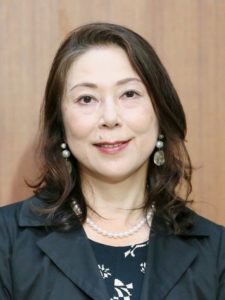
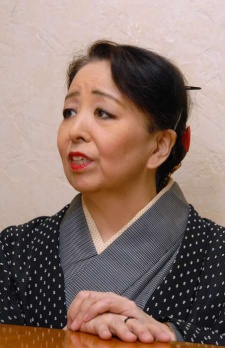
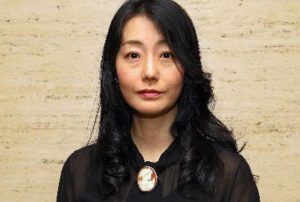
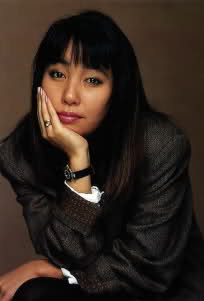
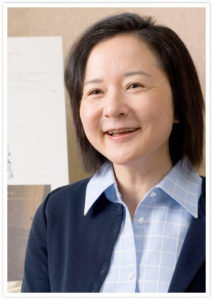
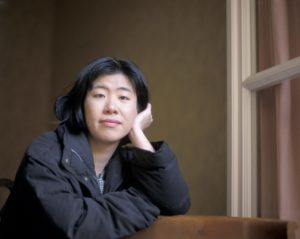
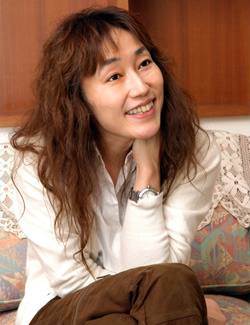
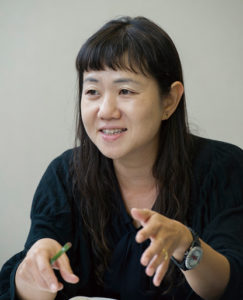
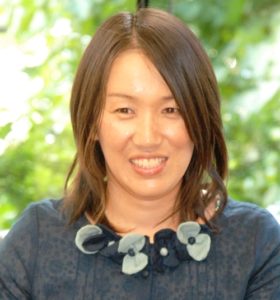
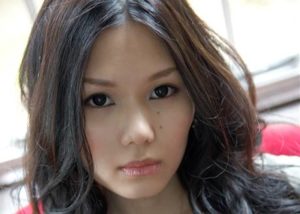









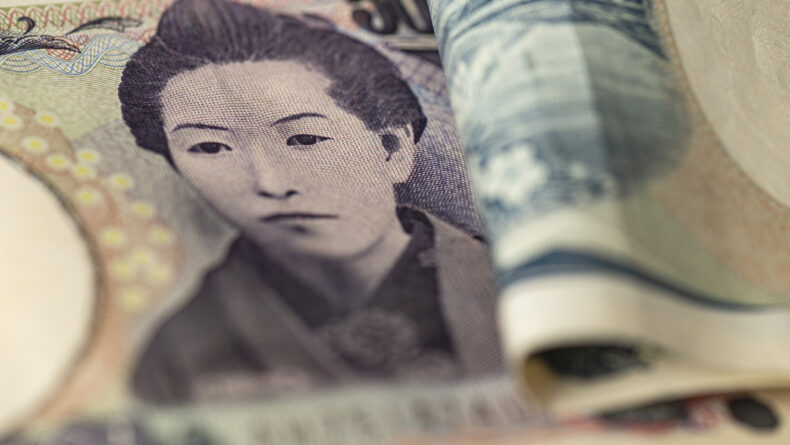
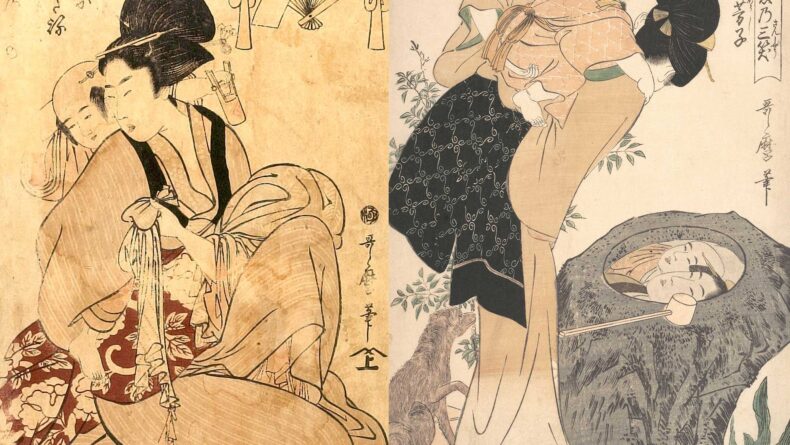
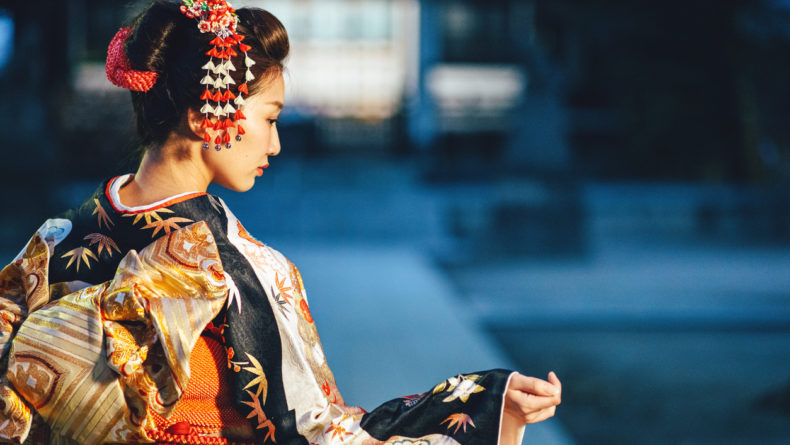

Leave a Reply